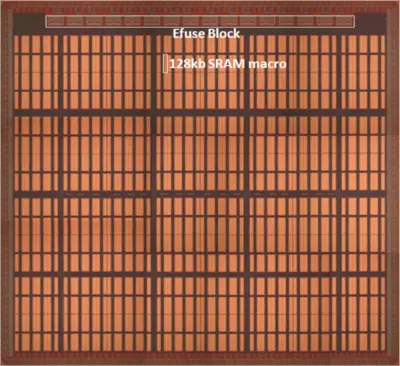From WikiChip
16 nm lithography process
The 16 nanometer (16 nm) lithography process is a full node semiconductor manufacturing process following the 20 nm process stopgap. Commercial integrated circuit manufacturing using 16 nm process began in 2014. The term "16 nm" is simply a commercial name for a generation of a certain size and its technology, as opposed to gate length or half pitch. This technology is set to be replaced with 10 nm process in 2017.
Industry
| Process Name | |
|---|---|
| 1st Production | |
| Lithography | Lithography |
| Immersion | |
| Exposure | |
| Wafer | Type |
| Size | |
| Transistor | Type |
| Voltage | |
| Fin | Pitch |
| Width | |
| Height | |
| Gate Length (Lg) | |
| Contacted Gate Pitch (CPP) | |
| Minimum Metal Pitch (MMP) | |
| SRAM bitcell | High-Perf (HP) |
| High-Density (HD) | |
| Low-Voltage (LV) | |
| DRAM bitcell | eDRAM |
| TSMC | |
|---|---|
| 16FF, 16FF+, 12FFN | |
| 2016 | |
| 193 nm | |
| Yes | |
| Bulk | |
| 300 mm | |
| FinFET | |
| 0.75 V | |
| Value | 20 nm Δ |
| 48 nm | N/A |
| 37 nm | |
| 34 nm | |
| 90 nm | 1x |
| 64 nm | 1x |
| 0.074 µm² | 0.86x |
TSMC
TSMC demonstrated their 128 Mebibit SRAM wafer from their 16 nm HKMG FinFET process at the 2014 IEEE ISSCC.
16 nm Microprocessors
This list is incomplete; you can help by expanding it.
16 nm Microarchitectures
This list is incomplete; you can help by expanding it.
References
- Chen, Yen-Huei, et al. "A 16 nm 128 Mb SRAM in High-κ Metal-Gate FinFET Technology With Write-Assist Circuitry for Low-VMIN Applications." IEEE Journal of Solid-State Circuits 50.1 (2015): 170-177.
- Wu, Shien-Yang, et al. "A 16nm FinFET CMOS technology for mobile SoC and computing applications." Electron Devices Meeting (IEDM), 2013 IEEE International. IEEE, 2013.
- TechInsights/Chipworks, Kevin Gibb, The ConFab 2016
 Semiconductor lithography processes technology
Semiconductor lithography processes technology
